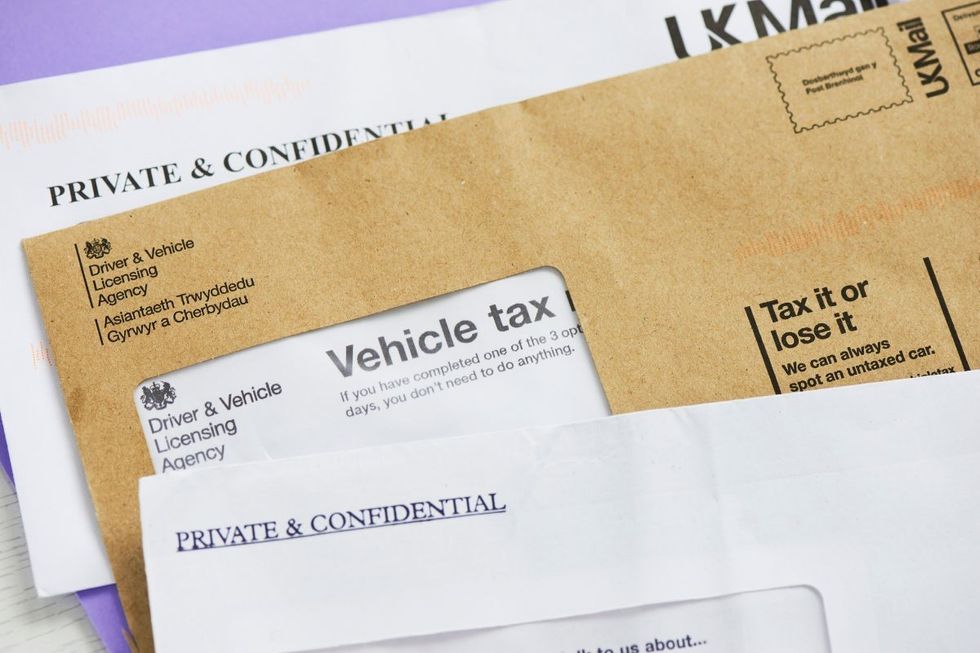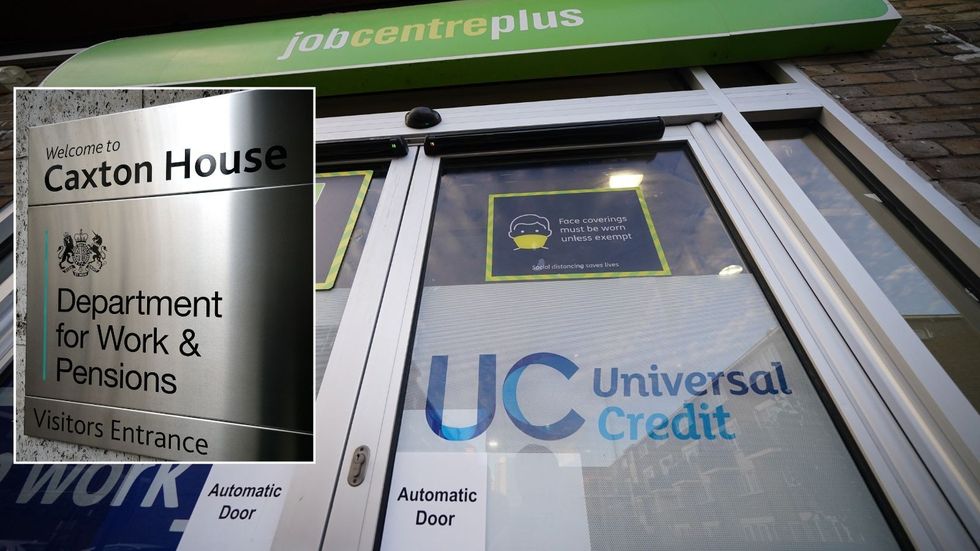Brits urged to 'take action' ahead of overhaul to pensions, savings and mortgages - top 10 changes in 2025
Pensions, taxes and savings will be impacted by confirmed changes being implemented by the Government which could see families lose their hard-earned cash
Don't Miss
Most Read
Trending on GB News
Britons are set to face ten significant financial changes in 2025 that could substantially impact household budgets across the nation with analysts urging families to "take action early".
The UK's existing rules for pensions, tax and savings are to be overhauled by April. Furthermore, homebuyers and sellers are being reminded of fluctuating changes to mortgages in 2025.
Here is a full list of the 10 top financial changes impacting British households in 2025 and when they are likely to take place, according to experts from Ocean Finance:
- Energy price cap rise - April 2025
- Council tax rate increase - April 2025
- New income tax thresholds - April 2025
- Changes to pension rules - April 2025
- Mortgage rate fluctuation - predicted to take place throughout the year
- Digital banking requirement - January 2025
- Changes to personal savings allowance - April 2025
- Vehicle tax updates - April 2025
- Minimum wage hike - April 2025
- Benefits system overhaul - April 2025.
Do you have a money story you’d like to share? Get in touch by emailing money@gbnews.uk.

Britons are preparing for massive changes to pensions, taxes, mortgages and savings
GETTYOfgem's price cap is expected to undergo changes in April 2025, with potential increases that could affect household energy bills across the UK. Analysts suggest households should consider locking in fixed tariffs if they can find deals below the current cap, as some suppliers are offering competitive rates.
Council tax is set to rise by up to five per cent as local authorities implement new reforms, potentially adding £100 annually to Band D properties. Homeowners are advised to verify their council tax band and check eligibility for discounts, particularly those living alone or on low incomes.
Income tax bands will see adjustments in April, potentially pushing more workers into higher tax brackets due to wage inflation. Those approaching tax thresholds are being encouraged to consider salary sacrifice schemes for pensions or childcare vouchers to reduce their taxable income.
State pension payments will increase by at least 6.7 per cent under the triple lock system from April 2025. This pension increase translates to an additional £800 per year for those receiving the full new state pension.

Changes to vehicle tax are on the way, experts warn
GETTYHowever, experts warn that this boost to state pensions shouldn't lead to complacency regarding private pension contributions. Furthermore, the triple lock boost brings the full, new state pension closer to the threshold for paying tax.
Mortgage rates remain a key concern for 2025, with the Bank of England suggesting base rate stabilisation, though fixed and tracker deals continue to fluctuate. The central bank will provide updates regarding interest rates throughout the year.
Digital banking will see new Strong Customer Authentication rules implemented, requiring users to ensure their contact details are current and familiarise themselves with authentication apps.
The personal savings allowance could face reductions, affecting tax-free interest on savings accounts. Financial experts recommend exploring ISAs and higher-interest savings accounts to maximise returns in light of these changes.
Vehicle Excise Duty rates are set to increase in line with inflation, while more cities implement emissions-based charges. Electric vehicle owners should particularly note the introduction of road tax for EVs from 2025, marking a significant change in vehicle taxation.
The National Living Wage is scheduled for an increase, benefiting workers but potentially leading to price adjustments as businesses adapt to higher costs. Employees are advised to consider splitting any pay rises between immediate needs and long-term savings.
LATEST DEVELOPMENTS:

Changes to the DWP will impact what is expected from Universal Credit claimants
PA.
Reform to the Department for Work and Pensions (DWP) will be implemented with new rules around work requirements for Universal Credit claimants. Regular checks of the Government's online benefits calculator are recommended, as eligibility for additional support may change throughout the year.
Personal finance expert Fiona Peake from Ocean Finance emphasises the importance of early preparation for these financial changes. "It's important to review your finances now and make adjustments before these changes kick in," Peake said.
She advises focusing on the most impactful changes first, whether they relate to energy bills or pension contributions. "Consider using budgeting apps or speaking with a financial adviser to create a personalised action plan," Peake recommends.
She particularly stresses the importance of staying proactive about financial planning. "The most important thing is not to bury your head in the sand - stay informed and take action early," she concludes.








